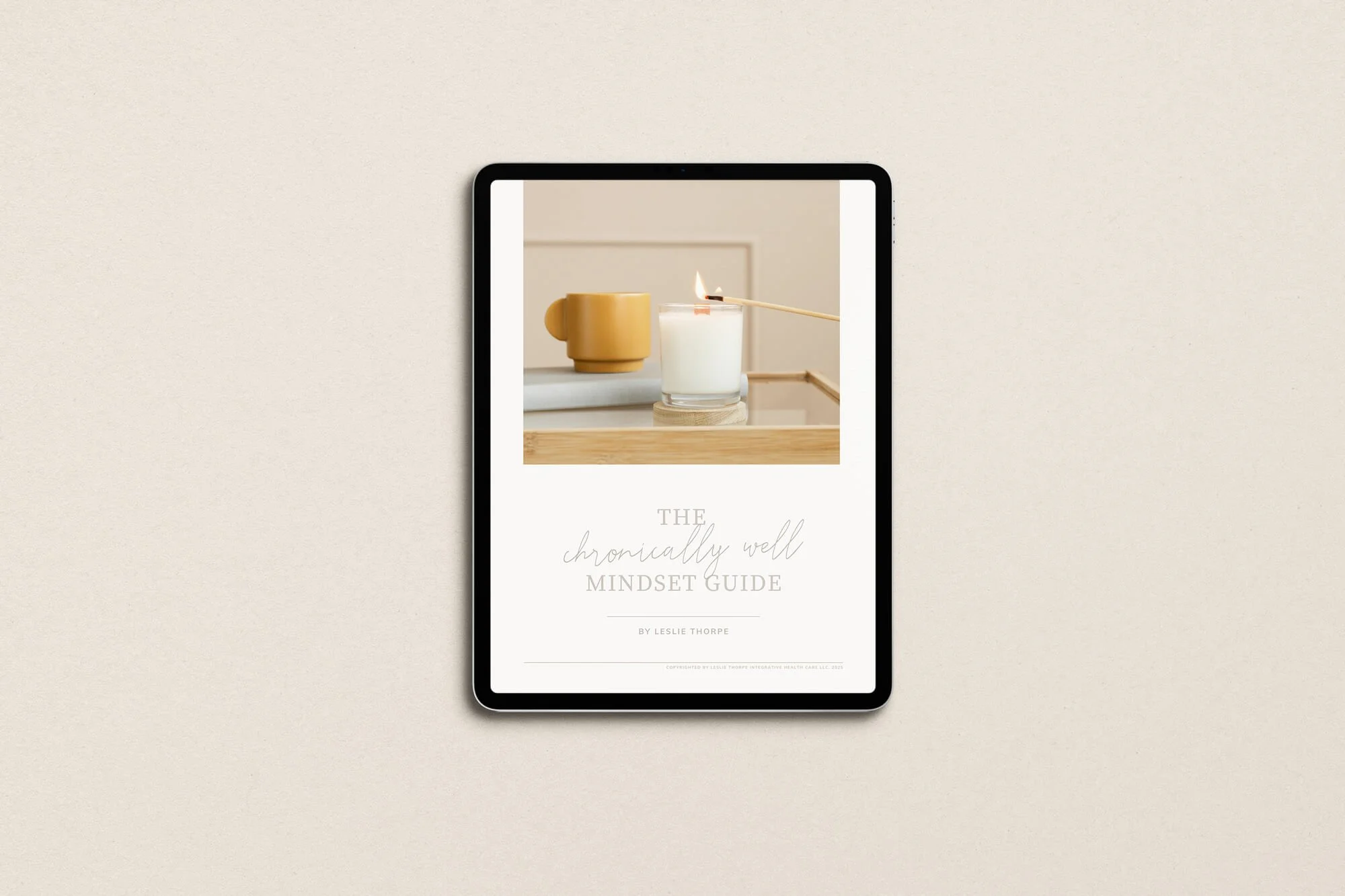Embracing Self-Love To Live Chronically Well
One of the most profound shifts we can make towards finding our Chronically Well balance is moving from a place of animosity towards our body to one of self-compassion and self-love.
When living with a chronic condition, it's easy to harbor negative feelings or resentment towards ourselves or our bodies. We may feel betrayed by our own bodies, frustrated by the constraints of our condition, or angry at the unfairness of it all. These feelings are entirely valid and natural, but dwelling on them can often amplify our suffering and create an internal environment that's harsh, critical, and detrimental to our well-being.
Self-compassion, on the other hand, invites us to treat ourselves with kindness, understanding, and acceptance.
It's about acknowledging our struggles without judgment, recognizing our inherent worth beyond our health status, and appreciating our bodies for their resilience and strength, despite the challenges they face.
Practicing self-compassion can be transformative in our journeys with chronic illness. It allows us to cope with our limitations more effectively and fosters a sense of inner peace. Most importantly, it reminds us that we are more than our illness; we are multi-faceted beings deserving of love and kindness, from others and ourselves.
My Transformation And How It Can Help You
Changing my mindset and viewing my body with kindness has transformed my chronic illness journey. Not only did it empower me, but it also improved my overall wellness.
There was a time when I wished for a body transplant if I had the opportunity. I was tired of being sick all the time, and I didn't trust or like my own body. It felt weak and unreliable to me. To be fair, some of that mistrust was earned. Even the slightest cold would quickly escalate into pneumonia or a sinus infection for me. My body constantly made me doubt what I was capable of.
I know many of us struggle with this mentality, and rightfully so. It's difficult to trust something that seems untrustworthy. It's hard to love something that causes us misery.
But what if we took a radical step and started loving and trusting our bodies?
At some point, I decided to give my body the benefit of the doubt. Instead of ignoring it or belittling it, I started listening to what it was asking for. I began trusting it, honoring it, and treating it with love and respect despite the challenges it brought to my life. It makes sense when you think about it—loving, liking, or respecting someone naturally leads to kindness and nurturing in relationships. Empathy and understanding tend to happen more.
Once I gave my body credit for everything it had been through—surgeries, radiation, chemo, steroids—I realized why my immune system was struggling. Finally recognizing its strength in surviving everything it endured allowed me to appreciate its efforts.
This newfound appreciation prompted me to listen more attentively. Rather than pushing through secondary infections, I prioritized rest and streamlined my schedule as best as possible. Ultimately, focusing on my health proved worth it—it improved both my well-being and quality of life.
Of course, these changes meant saying “no” more often when necessary. They meant missing out on certain things. My lifestyle became simpler, providing space to dial things down whenever needed. And in the end, it resulted in a more intentional and fulfilling life. Yes, it was challenging, but oh so worth it.
Making tough Choices
I'm not a fan of being forced into tough choices. But when you're dealing with chronic illness limitations and working towards sustainable well-being, tough decisions are unavoidable. The key is to make these choices proactively based on what matters most to you, rather than letting your body dictate terms after burning out. Ignoring your illness and pushing through only leads to outcomes that are frustratingly forced upon you.
The changes I made in my priorities and lifestyle had a remarkable impact on me. I could devote more attention to healing when I fell ill and address underlying issues affecting my body's functioning. My lungs got better, my gut improved, and I believe even my immune system became stronger. While I remain somewhat immunocompromised, I am much less fragile than before.
Nowadays, when sickness strikes, recovery still takes longer for me compared to others. However, I've developed an understanding of what my body is going through and learned to give it the rest it needs. It doesn't mean I don't get frustrated about missing out on events like a Beyonce concert, but I respect my body's needs more than ever before. And for that, I am incredibly grateful—it has brought me this far. And for many of us living with chronic illness, that's no small accomplishment!
To Find YOUR Chronically Well Mindset
Transform the way you approach life with chronic illness with the Chronically Well Mindset Guide.
Finding Self-Compassion
If you're feeling battered by your body and burdened by your illness, consider this a gentle nudge to reassess how you're relating to yourself. Are you fighting against your body or are you fighting alongside it?
Self-love and self-compassion are not just feel-good buzzwords; they're actionable, transformative practices that can lead us toward a more balanced life with chronic illness. They are the practices that make us Chronically Well in the truest sense – not cured, but cared for; not unscarred, but unafraid; not always comfortable, but always compassionate.
Let's ditch the dreams of body transplants for better dreams – dreams of peace with our imperfect, incredible bodies. Because in the act of loving them, we find our balance and become empowered to get the most out of life as we are today.
For more reading about ACCEPTANCE and SELF-COMPASSION, follow the links to some great posts to help you on your way. For a deeper dive, check out the Chronically Well Mindset Guide.
In what ways can you begin to shift your perspective and embrace self-love and compassion in your journey with chronic illness?
What specific steps can you take today to cultivate a more nurturing and accepting attitude toward your body?
Does this resonate?Please share this post with friends! Click the menu on the right to share on social media.





